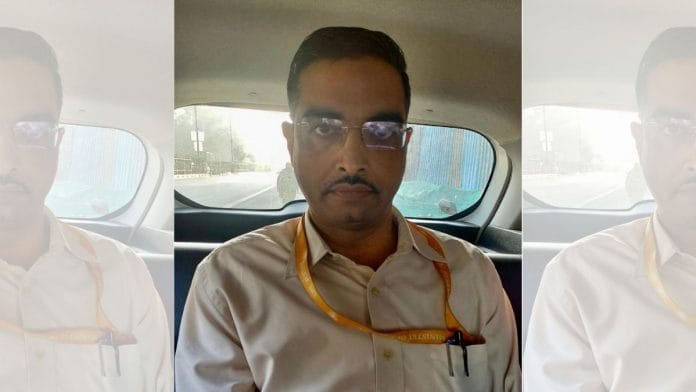New Delhi: The Delhi Police Special Cell have announced that they have filed a chargesheet in the Rohini Court Complex IED blast case of 9 December, in which 47-year-old Defence Research and Development Organisation (DRDO) scientist Bharat Bhushan Kataria is the accused.
Evidence cited in the 1,040-page chargesheet, filed in Patiala House Court on 15 March, includes eyewitness statements, “incriminating” objects and documents, CCTV footage, recoveries made from the accused, and disclosure statements, a Delhi Police source said.
The 47-year-old Kataria allegedly planted the bomb in a tiffin carrier to target a former neighbour — a lawyer named Amit Vashisht — with whom he’d had long-standing disputes.
The police source, who is privy to the investigation, said that the DRDO scientist was “inspired” by the shooting death of gangster Jitender Mann alias Gogi in the court complex last September. The gangster’s murder had raised questions on security lapses in court premises.
“Gogi’s murder and reports of how he was killed inspired the accused,” the source said.
“The search of Kataria’s house led to the recovery of several incriminating pieces of evidence connecting him to the crime. These included file covers like the ones present in the IED bag. Screws and shrapnel were also recovered from his house. They were identical to the ones used in the IED,” the source added.
According to Rajiv Ranjan Singh, Deputy Commissioner of Police (DCP), Special Cell/Northern Range & Special Task Force, Delhi, the investigation covered multiple grounds.
“CCTV footage of over 150 cameras was analysed. More than 1,000 vehicles were verified, and hundreds of people, including advocates, litigants, police personnel and other persons with past criminal record were also interrogated,” DCP Singh said.
“During investigation, sufficient evidence has come on record to establish the culpability of the accused beyond doubt,” the DCP added. “The entire investigation was conducted in a highly professional and scientific manner.”
Also Read: DRDO scientist held for Rohini court blast, Delhi Police says he wanted to kill ex-neighbour
‘Intent to kill’
Kataria had “knowingly and deliberately placed and triggered the IED”, using a remote trigger, with the intention to kill lawyer Amit Vashisht, the Delhi Police source said.
“The accused had searched the internet and looked up various ways to build a bomb,” the source said, adding that Kataria had subsequently attempted to delete his “digital footprints” from his electronic devices.
Forensics are awaited in the case and a supplementary chargesheet will be filed later in court, the source said.
The blast at Rohini court occurred around 10.25 am on 9 December, in courtroom No. 102, and left one policeman injured.
DCP Singh had told ThePrint at the time that Kataria had “searched for Vashisht” and found him sitting in the back row of the courtroom. He had then allegedly placed the bag containing the IED behind Vashisht and triggered the IED from a safe distance.
“At 10.35 am, [Kataria] walked out from the court complex on the Ring Road side and went back home in his Ertiga car,” DCP Singh had said.
A case was subsequently registered under IPC Section 307 (attempt to murder), and Section 3 of the Explosive Substances Act.
When he was taken into police custody some days after the incident, Kataria had reportedly attempted suicide by consuming handwash in the washroom.
A long history of rivalry
According to the Delhi Police source, Kataria was disturbed over financial troubles, his wife’s illness, and a legal suit filed by Vashisht when he decided to plant the bomb.
Kataria and Vashisht had a disputatious history that started a decade ago when the they were neighbours, with both filing suits against each other over matters related to their building.
The police earlier said that the two had filed a dozen civil and criminal cases against each other over the past 10 years, one of which was listed for 9 December 2021.
(Edited by Asavari Singh)
Also Read: Anyone can enter Rohini court, you need black coat & white shirt: Lawyers after gangster killing






